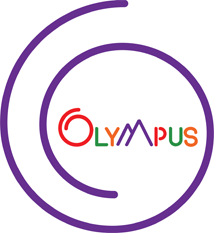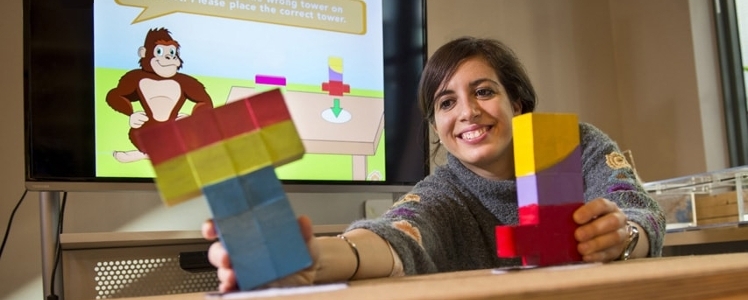Thursday, February 18, 2016
New EdTech Fund Forges Vital Ties Between Developers and Teachers
The Sprout Fund’s Ed-Tech Refinery is supporting partnerships between emerging entrepreneurs and educators at schools, libraries, and museums in the Pittsburgh region.Nesra Yannier is a fifth-year PhD candidate in human-computer interaction at Carnegie Mellon University whose background includes computer science, design, art, and education. She drew on these skills in creating NoRILLA, a classroom technology that teaches kids the basic physics of balance. Her prototype includes an app, a projector, some building blocks, and an electronic table that shakes. When students use it, an animated gorilla challenges them to build towers on the platform and predict which will fall first when an “earthquake” shakes the table.
Normally, edtech developers like Yannier would be on their own when trying to connect with teachers and students to test their concepts in real-world settings. But Yannier is part of a Sprout Fund initiative called the Ed-Tech Refinery, which is supporting efforts by ambitious young visionaries to partner up with educators at schools, libraries, and museums in the Pittsburgh region.
Starting this month, Yannier will be working with first, second, and third graders and their teachers at Montour Elementary School to further test NoRILLA and make the product as useful as possible in the classroom.
Mac Howison, senior program officer for catalytic funding at the Sprout Fund, said the Ed-Tech Refinery is rooted in the idea that a city should leverage all its assets to support its education “ecosystem”—schools, libraries, museums, afterschool settings, and the private sector. And though there is a growing edtech cluster in Pittsburgh, it’s not easy for fledgling companies to get the time and money they need to conduct robust testing with educators. As a recent Digital Promise report found, less than half of technology directors interviewed said they were satisfied with the length of time it takes to bring technology to kids. By providing grants to educators who work with ed tech companies, the Refinery makes those connections easier.
By strengthening ties between teachers and techies, the Sprout Fund hopes to bolster education technology in Pittsburgh. Ideally, Howison says, startups will use the partnerships to make products that, once successful, will fuel job creation in the region.
Widespread adoption is certainly Yannier’s goal. For now, though, she has been running tests at the Children’s Museum of Pittsburgh. She found kids learned faster when they saw the blocks tumble onto the table rather than simply collapse on a computer screen. Through her partnership with Montour, Yannier is eliciting feedback from educators about how best to use the platform.
“A lot of technology gets built but doesn’t get implemented because developers don’t listen to what teachers want,” she said. “I really want to get the perspective of teachers to make it more usable for them and easier for them to adopt.”
Since August, Montour School District has worked with CMU’s LearnLab to open an educational research center at the district high school. Teachers at Montour have been working with researchers to learn more about technology-enhanced education. Justin Aglio, director of innovation at Montour School District, said so far when teachers work with researchers who are also trying to learn, “it’s a safe way to take risks.”
“We really stress ‘how do children learn best?’ ” Aglio said. “Pittsburgh has amazing resources, so how do we capitalize on these resources to make the lives of our teachers easier and help our students learn?”
The Sprout Fund is accepting applications for a new round of Ed-Tech Refinery partnerships through the beginning of March. Yannier will continue working with teachers throughout the semester.
“I think we are both excited to see our students think like scientists,” Aglio said of the partnership with Yannier. “That’s our biggest goal—to help students experience hands-on learning and having students think critically.” Read More»
By: Kathleen Costanza

